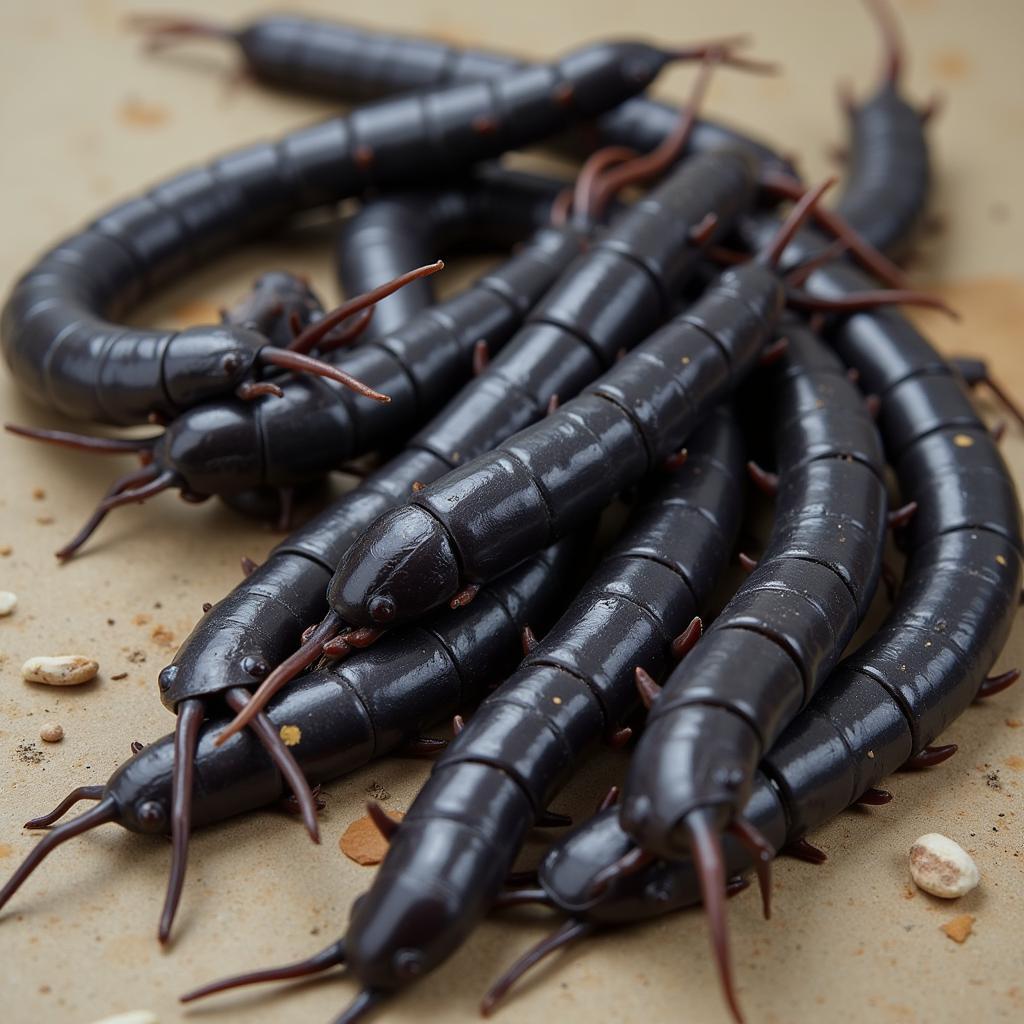Horse Leeches For Sale are a topic that often sparks curiosity and questions, especially amongst horse owners and holistic health practitioners. Understanding the potential benefits, responsible sourcing, and proper application of these fascinating creatures is crucial for anyone considering their use. This guide aims to provide a detailed overview of everything you need to know about purchasing and using horse leeches.
What are Horse Leeches and Their Potential Benefits?
Horse leeches, scientifically known as Haemopis sanguisuga, are a species of leech that, despite their name, do not typically feed on horses. They are predatory leeches, meaning they consume invertebrates like worms and insect larvae. Historically, however, they were used medicinally on larger animals, including horses, hence the common name. While research on their medicinal benefits is still ongoing, some proponents believe they can help with various conditions in horses, including inflammation, pain relief, and improved circulation.  Close-up of horse leeches showing their segmented bodies and suckers
Close-up of horse leeches showing their segmented bodies and suckers
Sourcing Horse Leeches Responsibly
Finding reputable suppliers of horse leeches for sale is paramount. Ensure the supplier breeds leeches specifically for medicinal purposes in a sterile and controlled environment. This reduces the risk of infection and ensures the leeches are healthy and effective. Avoid wild-caught leeches, as they can carry diseases and parasites that could harm your horse. A reputable supplier will be able to provide information about their breeding practices and the health of their leeches. They should also be able to offer guidance on proper handling and application techniques.
Applying Horse Leeches: A Step-by-Step Guide
Applying horse leeches requires care and attention to detail. Here’s a step-by-step guide:
- Clean the area: Thoroughly clean the area where you intend to apply the leeches with mild soap and water. Dry the area completely.
- Prepare the leech: Gently place the leech in a small container, like a shot glass, and hold it against the skin.
- Attachment: The leech will attach itself to the skin and begin feeding. This process can take anywhere from 20 to 45 minutes.
- Removal: Once the leech is engorged, it will detach itself. Do not attempt to pull the leech off, as this can cause injury to the horse.
- Aftercare: Clean the area again with mild soap and water. A small amount of bleeding is normal and may continue for several hours. Apply a clean bandage to the area.
Potential Risks and Considerations
While horse leeches can offer potential benefits, it’s important to be aware of the potential risks. These include:
- Infection: While rare with leeches from reputable suppliers, infection is always a possibility.
- Allergic reactions: Some horses may be allergic to leech saliva.
- Excessive bleeding: Although rare, excessive bleeding can occur.
It’s crucial to consult with a veterinarian before using horse leeches, especially if your horse has any underlying health conditions or is on medication. A veterinarian can advise on the appropriateness of leech therapy and help monitor your horse for any adverse reactions.
Where to Find Horse Leeches for Sale
Several online and offline resources can help you find horse leeches for sale. Look for suppliers who specialize in medicinal leeches and can provide documentation of their breeding practices and health certifications. Don’t hesitate to ask questions about their experience and expertise in handling and shipping leeches.
Conclusion
Finding horse leeches for sale requires careful consideration and research. By choosing a reputable supplier and following proper application techniques, you can potentially harness the benefits of these fascinating creatures while minimizing the risks. Always consult with your veterinarian before using horse leeches on your horse to ensure their safety and well-being.
FAQ
- Are horse leeches painful for horses? No, leech bites are generally not painful due to anesthetic properties in their saliva.
- How many leeches should I use on my horse? The number of leeches will depend on the specific condition and should be determined in consultation with a veterinarian.
- How often can I apply horse leeches? The frequency of application will also depend on the condition being treated and should be determined by a veterinarian.
- Can I use horse leeches on other animals? It’s best to consult with a veterinarian before using horse leeches on any animal other than a horse.
- Where can I find a reputable supplier of horse leeches? Reputable suppliers can be found online or through referrals from veterinarians who practice holistic medicine.
- What are the signs of an adverse reaction to horse leeches? Signs of an adverse reaction can include excessive swelling, itching, or hives. Contact your veterinarian immediately if you notice any of these symptoms.
- Are there any alternatives to using horse leeches? Yes, there are other therapies that can be used to treat similar conditions in horses. Discuss these options with your veterinarian.
Need more information? Check out these other articles on our website:
- Equine Health and Wellness
- Holistic Therapies for Horses
For assistance, please contact us: Phone: 0772127271, Email: [email protected] Or visit us at: QGM2+WX2, Vị Trung, Vị Thuỷ, Hậu Giang, Việt Nam. We have a 24/7 customer service team.